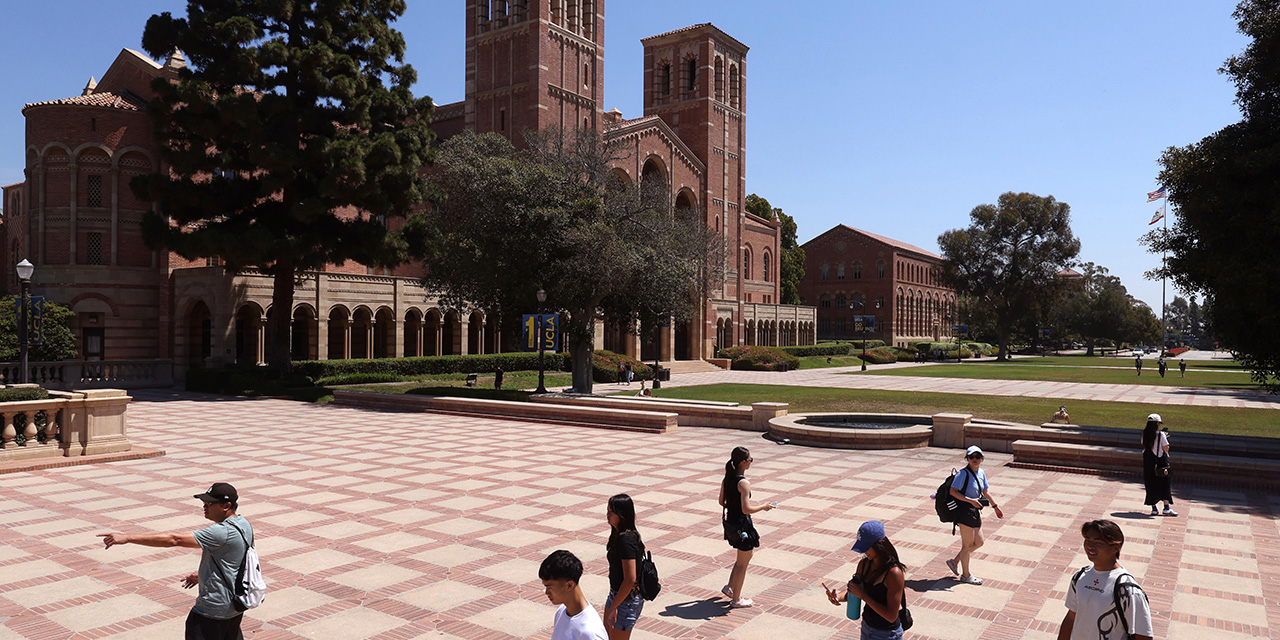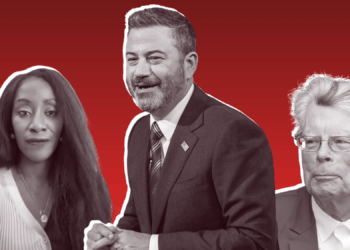
Last month, Inside Higher Ed published a reply to the Manhattan Statement on Higher Education, a bold reform manifesto to which I am a signatory. The reply’s author, academic free speech gadfly John Wilson, attacks many strawmen. But he avoids the real question: What influence, if any, should the public have over taxpayer-funded institutions of higher education?
Wilson warns that following the statement’s guidance threatens “massive federal control over colleges.” But such control already exists and has for decades. Every institution that accepts state or federal funding for any purpose—and that’s almost every college and university in the country—is subject to some degree of government control.
Finally, a reason to check your email.
Sign up for our free newsletter today.
And they should be. Americans believe we have the right to govern ourselves. That includes deciding where our tax dollars should go. We ought to withhold them from public or private colleges that employ racially discriminatory hiring or admissions practices. It’s not “repression” to withhold federal funding; schools don’t have a right to it in the first place.
Some, like Wilson, disagree. In their view, the public needs the guidance of the universities and the credentialed experts they send out into the public and private sectors. To subject universities to democratic control would be intolerable.
Wilson imagines that he has checkmated the Manhattan Statement signatories by citing the American Association of University Professors’ 1915 Declaration of Principles, which, in his words, “states that politicians and even college trustees ‘have neither competency nor moral right to intervene’ in the professional work of academics.” He ignores the context of this claim, which is limited to trustees and immediately followed by an invocation to public responsibility: “[I]n the essentials of his professional activity [the professor’s] duty is to the wider public to which the institution itself is morally amenable,” the declaration states.
Indeed, reading the AAUP’s declaration today reveals how drastically academia has changed over the past century. The document states that it is “a distinctive duty of the university to be the conservator of all genuine elements of value in the past thought and life of mankind which are not in the fashion of the moment.” It proclaims that a university “by its nature . . . is committed to the principle that knowledge should precede action,” and that “one of its most characteristic functions in a democratic society is to help make public opinion more self-critical and more circumspect, to check the more hasty and unconsidered impulses of popular feeling, to train the democracy to the habit of looking before and after.”
Today, universities are dedicated to overthrowing “all genuine elements of value in the past thought and life of mankind,” not conserving them. Activist professors subvert the distinction between knowledge and action. Higher education is more likely to radicalize young Americans than to equip them with the habits of self-restraint, reflection, and deliberation necessary for personal flourishing and public responsibility.
The foundation of the AAUP was itself a milestone in America’s unfortunate transition from a self-governing republic to an expert-managed bureaucracy. But the professors of 1915 still affirmed basic truths that our universities have spent the past half-century deconstructing. Small wonder, then, that the professoriat of a century ago enjoyed greater deference from the American people than does today’s.
If Wilson and his friends dislike this reality, they should consider the alternative on offer. I teach at Wyoming Catholic College, one of a handful of institutions that refuse all federal funds. We rely for our operations on modest, uninflated student tuition and the incredible generosity of donors who believe in our mission.
We don’t feel oppressed because we don’t receive tax dollars—we feel free. But that freedom, like all freedom, is not easy. It incurs the weight of responsibility: to articulate our mission; to stay true to it; to communicate it to students, parents, and donors; and to be good stewards of our meager funds. We must keep a sharp focus on the essentials of education, rather than lavishing other people’s money on administrative bloat and luxurious facilities.
I wish that the public could feel confident that universities were using their tax dollars to serve the public interest. But that is not the country we live in today. And you can’t get there by gaslighting Americans into thinking that common-sense university reforms amount to tyranny.
If universities want to keep the tax dollars rolling in, they will have to make themselves worthy of the people’s trust again.
Photo by Genaro Molina/Los Angeles Times via Getty Images
City Journal is a publication of the Manhattan Institute for Policy Research (MI), a leading free-market think tank. Are you interested in supporting the magazine? As a 501(c)(3) nonprofit, donations in support of MI and City Journal are fully tax-deductible as provided by law (EIN #13-2912529).
Source link

















